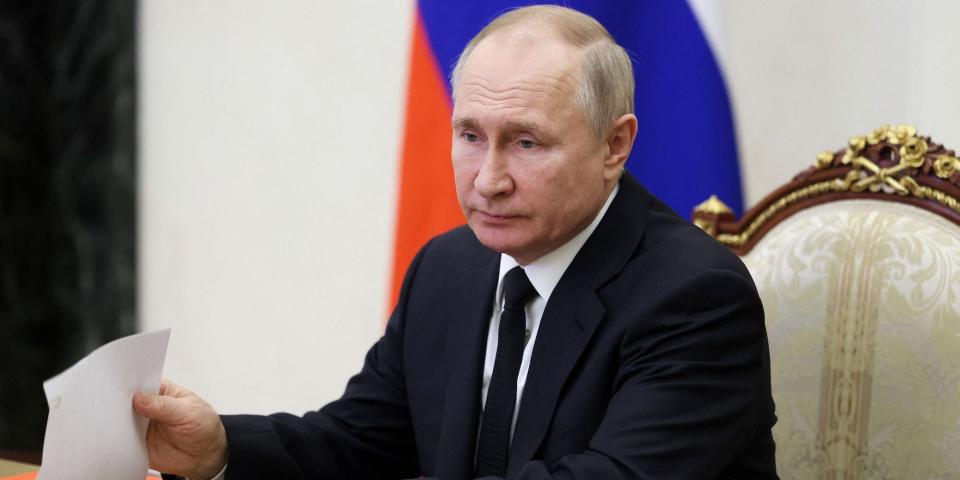Russia's economic war with the West is entering a dangerous new stage, scholar says

Russia's economic war against with the West is entering a dangerous new stage, Alexandra Prokopenko wrote.
The Kremlin previously focused its retaliation on Europe's energy markets, the Russia scholar said.
But Russia recently set up a legal framework to temporarily nationalize foreign assets.
The Kremlin has shifted its tactics against the West, and now looks to take over foreign assets within its borders, according to a Russia analyst.
It's an escalation on Moscow's part, after prior retaliation against Western sanctions was focused on restricting energy supplies for Europe, Alexandra Prokopenko, a nonresident scholar at the Carnegie Russia Eurasia Center, wrote in the Financial Times.
"Russia's economic confrontation with the west following the Kremlin's invasion of Ukraine is entering a dangerous new stage," she warned.
After Moscow suffered court defeats that kept Russian assets frozen in Europe, the Kremlin has since established a legal framework to temporarily nationalize foreign assets in Russia, Prokopenko added.
Projects that cost billions of dollars are now at risk, and the Russian government will likely take a "personalized approach" with each stakeholder, as it tries to divide the West, she wrote.
A key piece of Moscow's new retaliation strategy is a decree that President Vladimir Putin signed last month, that Prokopenko said gives the government's property management agency control over Western assets affected by halts to Russia operations and the ability to sell them to Russian buyers.
The decree also requires firms of "unfriendly nations" to pay a donation to Russia's war efforts, equating 5% to 10% the value of a sold asset. Western companies are also required to sell their stakes in projects shared with Russian partners at a 50% deduction.
Since Putin signed the decree, the assets of Finnish and German energy firms have been placed under provisional management.
Between this and Western constraints on selling to Russia, "a growing number of such companies look increasingly likely to lose their investments in Russia entirely," Prokopenko said.
However, she said that these new restrictions will be applied to companies individually, based on their ties with Russia's government.
"So far, neither Russia nor Europe has a comprehensive strategy on how to deal with the stranded assets," she said. "The breakdown of ties will almost certainly exacerbate the conflict as the Kremlin seeks ways to punish Europe for imposing sanctions and supporting Ukraine. The appetite of Putin's cronies to seize western assets in Russia will only add insult to injury."
Read the original article on Business Insider
